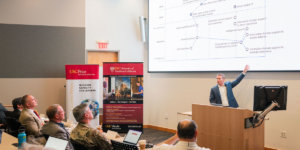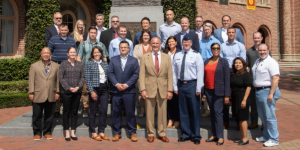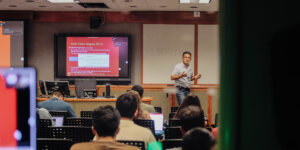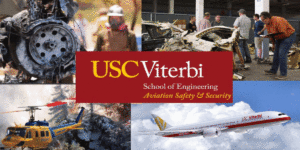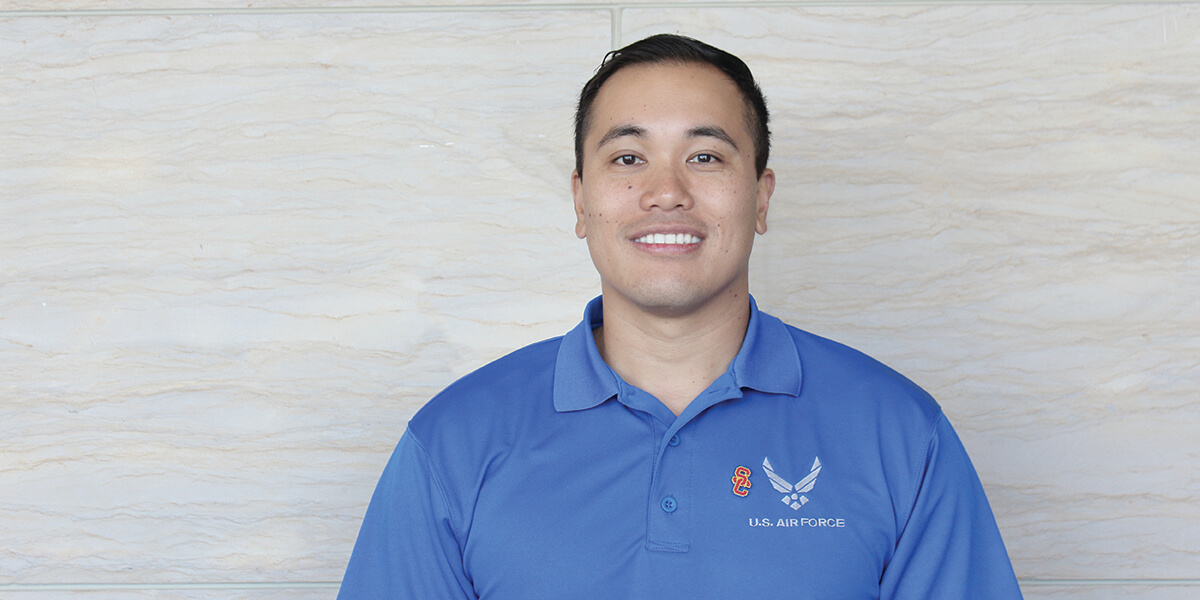
U.S. Air Force veteran Neil Constantino is an M.S. candidate in cyber security engineering Photo / Dylan Cavas
With new threats looming, cyber security has become a frontline in the fight to bolster the nation’s defenses. Many authorities on national defense and the Internet are warning that the critical infrastructure of the U.S. – including electrical power, finance, telecommunications, health care, transportation, water, defense, and the Internet – is highly vulnerable to cyber attack.
On August 18, 2017, President Donald Trump directed that Cyber Command, the Pentagon’s offensive cyber-force, will become its own unified military command, putting it on par with the main combatant commands, such as Central Command. While these precautions prepare the Pentagon for an offensive attack, cyber security training also teaches defensive mechanisms.
Thankfully, student veterans like Neil Constantino, M.S. candidate in cyber security engineering, have answered the call.
After first completing his bachelor’s degree in computer science at UC Irvine, Constantino spent six years in the Air Force as a developmental engineer specializing in computer systems. Constantino was stationed at the Air Force Space and Missile Systems Center in Los Angeles. He was recently admitted to USC Viterbi’s Master of Science in Cyber Security Engineering program.
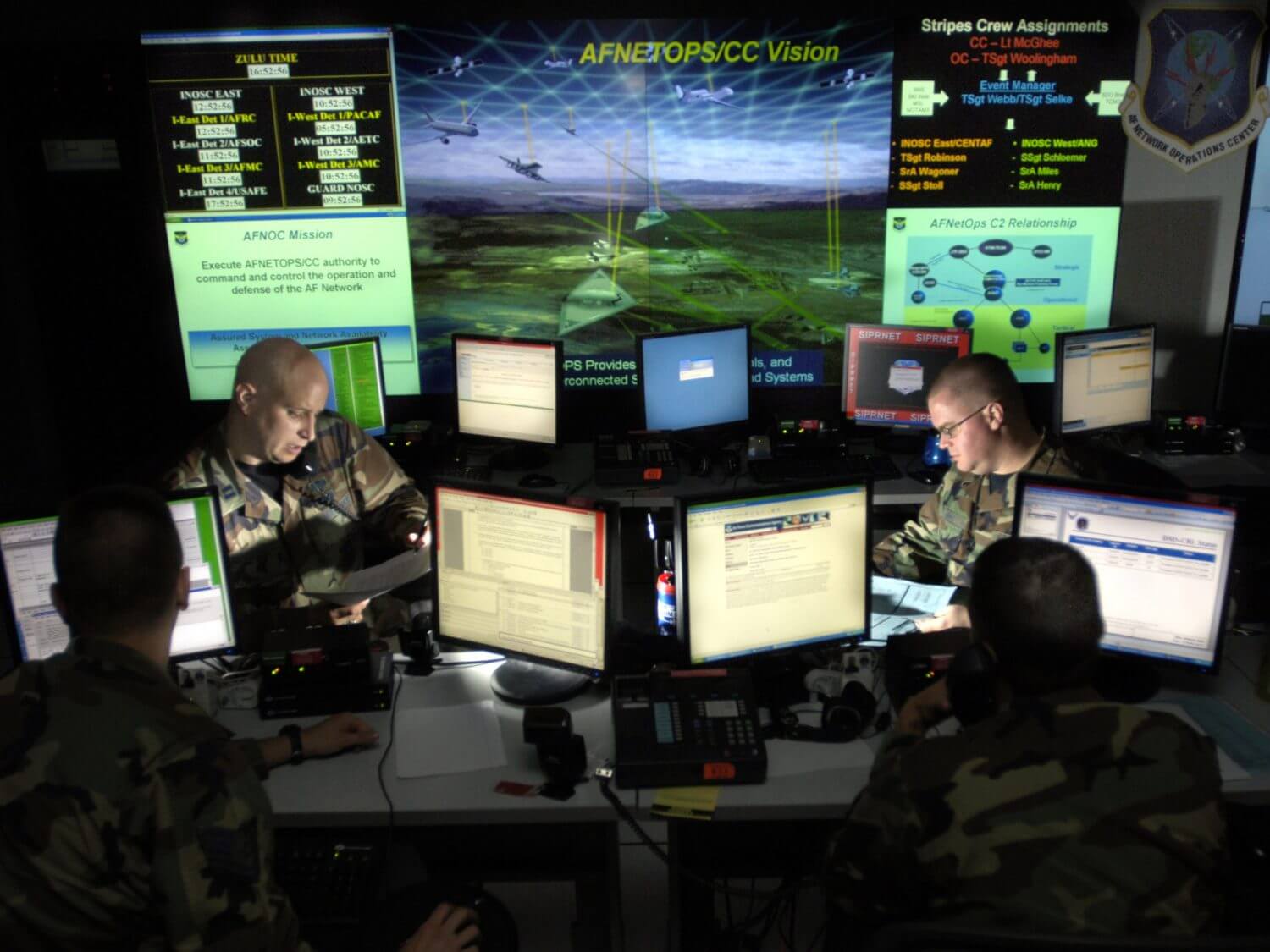
Capt. Jason Simmons and Staff Sgt. Clinton Tips update anti-virus software for Air Force units to assist in the prevention of cyberspace hackers at Barksdale Air Force Base, La. Photo/ U.S. Air Force Technical Sgt. Cecilio Ricardo
Constantino sees cyber warfare as a high-stakes battleground that doesn’t only affect nations but individuals on a personal level as evidenced by the recent Equifax hack. It was the growing relevance of cyber security in the personal lives of American citizens that drew him to the program. “Cyber security has been a pretty big issue for the U.S., and a lot of the current threats are cyber security issues,” he said. “Cyber space is the newest domain of war.”
They’re not out there in the open in fatigues and carrying M16s but this rising generation of cyber warriors are fighting to thwart threats and protect lives 24/7. Constantino pointed to emerging evidence foreign governments meddling in the U.S. democratic process as a prime example of potential threats. He’s taking what he’s learned at USC Viterbi straight to the frontlines.
“My studies in cyber security engineering directly correlate to my upcoming assignment with the California Air National Guard,” Constantino said.
He is taking a leave of absence at the end of the fall semester to attend the government sponsored training program for cyber security. Once he completes the year-long program, he will resume his studies at USC in 2019.
One of the attractions of USC Viterbi’s veteran-focused programs is that they give students the freedom to take world-class higher education courses with the same level of academic rigor, professors, and opportunities as on-campus classes, whether students are at home or abroad.
“Not only is the university aware of the needs of its student veterans,” Constantino said, “But it works to tailor programs that align with what students are working on in the field.”
Published on November 8th, 2017
Last updated on April 8th, 2021




